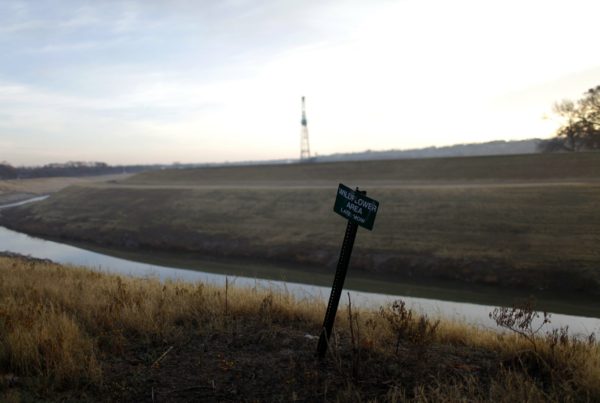Texans think that border security and immigration are the most important issues facing the state, according to a recent poll by the Texas Politics Project. And as the gubernatorial race between Gov. Greg Abbott and Democratic challenger Beto O’Rourke enters its final weeks, some conservatives continue to call for Abbott to declare that an “invasion” is occurring on the southern border.
Advocates for declaring an invasion often cite sections of the Constitution that say that a state may defend itself if it’s been “actually invaded.” But according to Denise Gilman, professor and director of the Immigration Clinic at the University of Texas at Austin School of Law, that’s a misinterpretation of both the situation on the U.S.-Mexico border, and the law.
This transcript has been edited lightly for clarity:
Texas Standard: This argument that states can declare an invasion to defend themselves – where might we find that in the Constitution?
Denise Gilman: Well, it’s interesting. There is a provision in the Constitution that mentions the idea of invasion, which, by the way, this very clearly is not. But in any case, that provision really makes very clear that it is for the federal government always to be the one to address invasions [and] any question of invasion of our borders.
Now, you’ve already said that this can’t happen. Is it because of the fact that these are unarmed migrants and wouldn’t necessarily qualify as invaders? Or how would we meet this definition, and why does this definitely not?
Well, right. So I’m not sure that there is a clear definition of what an invasion would be, exactly. But it’s quite clear that it would need to be some sort of state-sponsored effort to take over territory. There is no way that asylum-seeking families arriving at the border [who] are seeking protection under federal law that gives them the right to apply for asylum would constitute any sort of invasion. It’s really all about using this language, again, to create a narrative of danger, of threat, both to appeal to certain voters who are anti-immigrant and to justify other extremely restrictive and harmful actions that punish and dehumanize migrants.
If Governor Abbott were willing to test this out and decided to declare that Texas was being invaded, are there actions that the state could take that it hadn’t before? Or is it, like you said, just a matter of rhetoric?
I really believe it’s just a matter of rhetoric. Again, the Constitution only provides for the authority and the duty of the federal government to address an invasion. It grants no authority to states. And so, again, I really believe that this is just another effort to appeal to anti-immigrant voters, who I do genuinely believe are the minority in the state of Texas, and to attempt to justify other actions, but without any actual legal basis for doing so.
So far, Governor Abbott – who used to be Texas’s top lawyer himself – probably knows this very well and has resisted calls to declare an invasion. Do you think that there are clues that he might change that course in the future to test this out?
Again, I wouldn’t be incredibly surprised if he did continue to talk about an invasion. He already used the word in one of the declarations relating to Operation Lone Star. But if he attempted to attach any legal consequence to that, I think that’s where there’s just really going to be no way in the courts or even in public opinion to do that, because there’s just no hook for it. There’s no basis in the Constitution for justifying additional legal action based on such a declaration. So it’s really all about politics.
Again, what is actually happening at the border is very explainable because of a series of actions that were taken, particularly under the Trump administration, that blocked individuals at the border despite provisions in the law that allow them to seek asylum. And so now you are seeing larger numbers. But again, these are individuals, largely families, fleeing situations of extreme human rights violations in their home countries seeking protection. And so it just is beyond the pale to talk about this as an invasion.












